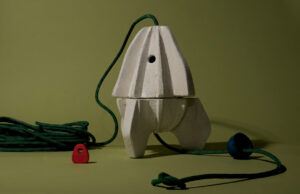8 Different Coughs, Their Symptoms And What Each Means For Your Health

Coughs are mainly a protective reflex to remove foreign bodies, mucus or irritants and a primary respiratory reflex for inflammation. Knowing which type of cough is ailing you is the first step in addressing a solution. Here are 8 types of coughs, their symptoms and how to treat them.
Each type of cough is distinct and could help indicate specific underlying illness. One of the best ways to diagnose a cough is by listening.
1) CHRONIC DRY COUGH
A stubborn dry cough that comes and goes, but never quite disappears. It’s called a dry cough because it doesn’t produce phlegm. It usually occurs during the day, prompting a coughing fit that can last three to ten minutes. In extreme cases, sufferers experience oulled muscles, incontinence and even fractured ribs.
CAUSE: Such coughs used to be simply written off as ‘unexplained’. But doctors have recently discovered that in some cases the problem is hypersensitivity in the upper-airways, triggered by a reflux of gas from the stomach. Dry coughs are usually caused by allergies, colds and bronchitis.
Certain medications can cause coughing, particularly ACE inhibitors, prescribed for high blood pressure. This -usually happens in about 15 percent of people who use them — possibly because the drugs stop the breakdown of a naturally-occurring chemical called bradykinin which, in turn, makes the nerve endings in the lungs more sensitive to irritation.
Once this hypersensitivity has set in, sufferers will have a coughing fit if anything — such as dust or cold air — touches their throat. However, not everyone who has gas reflux will develop a cough as a symptom.
TREATMENT: Take 10 black pepper corns (not grounded or powdered pepper) and boil them in a glass of water. Boil the water till it reduces to half a glass. Filter the pepper corns and allow the mixture to get luke warm. Mix a spoon ofhoney and take small sips. It will decrease symptoms within a few hours and then repeat. After 2 days of regular use the cough should subside. Other useful natural remedies in tea preparations include turmeric, honey, ginger, plantain leaf, sage and lobelia.
2) CHRONIC, TICKLY COUGH
Tickly coughs are closely related to dry coughs and are sometimes these terms are used interchangeably. Both these types of coughs may be referred to as dry tickly coughs. Although this cough is non-productive and doesn’t produce phlegm, you feel as if mucus or catarrh is dripping down the back of your throat. Sometimes it can also feel as if there’s a lump in the throat.
CAUSE: This is known as a post-nasal drip — the cause of about 7 percent of coughs, says Professor Peter Barnes, head of -respiratory medicine at Imperial College, London. But they may also be caused by colds and flu. If our immune system is not able to overcome this infection, viruses enter the tissues of the upper airways, causing inflammation.
Normally, we produce up to four pints of clear thin mucus every day from the glands which line the nose and sinuses. This usually drips unnoticed down your throat.
Tickly coughs can be triggered by pollution, a smoky atmosphere or cold air. This is because the particles in the air you breathe are trapped by the mucous lining of your throat, causing irritation and the need to cough.
Hayfever can also cause tickly coughs. The body reacts to the presence of pollen by releasing large amounts of the chemical histamine. This causes inflammation of the respiratory tracts, potentially leading to a tickly cough.
TREATMENT: It is unlikely that antibiotics will help people suffering from a tickly cough as these drugs only work on bacteria and most tickly coughs are the result of viral infections. Herbal remedies, such as extracts of spruce or pine shoots, have been used traditionally to help tickly coughs. Honey also soothes the lining of the tissues at the back of the throat.
3) BARKING, DRY COUGH
The cough might be accompanied by some wheezing, but no phlegm. It occurs at night and intermittently during the day.
CAUSE: This cough usually happens after a bout of cold, flu or other respiratory infections and might be caused by increased inflammation in the airways.
TREATMENT: In most cases, it should go away by itself after a few weeks. Honey lozenges can help. Spongiatosta homeopathic remedy (any potency) taking 3-4 pellets a few times per day. Aconitum Napellis homeopathic remedy (any potency) helps with the sudden onset of dry barking coughs. Steam treatments and infrared saunas are also beneficial.
Symptoms might also be eased by leaning over a bowl of boiling water with a towel over your head, as moisture from the steam will soothe and lubricate the airways. Adding a few drops of eucalyptus may help.
4) PAINFUL, HACKING COUGH
This is a constant cough, that is particularly bad in the morning. It tends to bring up thick yellowy/grey or green/rust-coloured mucus. There might also be pain behind the breast bone, a sore throat, wheezing and a blocked nose.
CAUSE: The likely cause is acute bronchitis, an infection of the large airways of the lungs (bronchi), which causes them to become irritated and inflamed. This often starts after a respiratory infection, such as a cold.
Acute bronchitis itself is usually caused by a virus — but around 5 to 10 percent of cases are triggered by bacteria; in bacterial infections, the phlegm will be green or rust-coloured.
TREATMENT: Bed rest and drinking lots of fluids to prevent dehydration and to thin the mucus, making it easier to cough up. Over-the–counter products will not speed up your recovery and often contain harmful ingredients that will further suppress the immune system.
Salt water gargle is an effective way of treating a dry hacking cough. Add a bit of salt to lukewarm water and gargle with it. A salt gargle helps loosen up the mucus, and salt also contains anti-inflammatory and antiseptic properties.
The combination of honey with turmeric powder is a good remedy for a hacking cough. Honey and lemon juice and honey and onion juice are also excellent cough remedies.
Ginger combines with the healing property of honey and results in an excellent home remedy for a hacking cough. Chewing fresh ginger slices is another handy way to cure a hacking cough.
Marshmallow root, lobelia, mullein, and wild cherry bark are some of the herbs that soothe the throat and ease the dry cough. Herbal tea made from slippery elm helps to suppress dry cough as it provides soothing effect to the throat. Yerba Santa, lemon grass, cinnamon, orange, and lemon essential oil are other beneficial herbs and essential oils for a hacking cough.
5) THROAT–CLEARING COUGH
It feels like you have a lump in your throat and coughing leaves you with a nasty, bitter taste in the mouth. The cough can be triggered by talking, laughing, singing or eating particularly dry food. It also tends to occur at night.
CAUSE: The most likely cause is stomach acid reflux — this affects about 25 percent of the adult Western population. As the lining of the esophagus is extremely soft and sensitive, this leads to inflammation, which triggers a coughing fit.
Reflux can lead to a condition called Barrett’s esophagus — this causes abnormalities in the cells and raises the risk of oesophageal cancer.
TREATMENT: Try a teaspoon of baking soda in a half cup water which is very effective (although not very tasty). 1 to 2 teaspoons of apple cider vinegar daily also works well. It’s great mixed with honey in tea or instead of lemon in tea. Eat a Red Delicious apple after problematic meals. Supplement with Saccharomyces boulardii, a probiotic strain specifically for the small intestine. Take the herbal supplement slippery elm in capsule, powder or lozenge form, as it soothes the irritated tissues of the digestive tract. A tablespoon of Manuka honey on any empty is also very effective.
6) DRY COUGH WITH WHEEZE
You tend to cough more during the night or first thing in the morning.
CAUSE: One likely culprit is asthma. ‘Ten percent of asthma sufferers don’t realise they have it,’ says Dr Keith Prowse, of the British Lung Foundation. When someone with asthma comes into contact with something that irritates their airways, the muscles around the airways tighten.
An asthma cough can be triggered by a cold, exposure to certain foods or irritants, such as pollen. It is not known why the cough is worse at night or in the morning.
TREATMENT: You should have your doctor confirm a diagnosis of asthma, however you’re best to avoid first line of treatment involving inhalers which degrade lung function in the long-term. Eliminate milk and milk products, substituting other calcium sources. Eliminate polyunsaturated vegetable oils, margarine, vegetable shortening, all partially hydrogenated oils that might contain trans-fatty acids, all foods that might contain trans-fatty acids (such as deep-fried foods). Always drink plenty of water to keep your respiratory tract secretions more fluid. Experiment with eliminating (one at a time) wheat, corn, soy and sugar for six to eight weeks to see if the condition improves. Eat ginger and turmeric regularly for their anti-inflammatory effects. Minimize contact with respiratory irritants, such as smoke, dust, molds, and volatile chemicals. Remove sources of offending materials from your home, install a good air filtration system, or consider moving if the air is generally bad where you live. Lobelia inflata, Antimonium tartaricum and Sambucus nigra are excellent homeopathic remedies for asthma.
7) BREATHLESS, PAINFUL COUGH
A persistent cough accompanied by shortness of breath.
Other symptoms might include coughing up blood, loss of appetite, losing weight and a dull ache or sharp pain in the lung area when you cough or take a deep breath. This cough is unrelenting and happens most of the time.
CAUSE: One possibility is lung cancer. ‘The problem is that it is possible to mistake these -symptoms for a chest infection,’ explains Dr Jesme Fox, medical director of the Roy Castle Lung Cancer Foundation.
‘The difference is that the cough persists for weeks, with little sign of getting better.
Lung cancer is quite rare, but it’s vital you don’t ignore these symptoms and get checked out by your doctor.
TREATMENT: This depends on the type of lung cancer though often I don’t recommend surgery, radiotherapy or chemotherapy for any cancer. Stick to fresh uncooked fruits, vegetables, and nuts (no peanuts allowed). Avoid animal protein, including dairy products, that produce a heavy drain on pancreatic enzymes required for effective use of vitamins. Uncooked vegetables should comprise 75 percent of the diet because critical enzymes involved in healing cancer are destroyed at high temperatures. In addition, no sugar, preserves, strong spices, stimulants as coffee, alcohol and cigarettes; no soy products. Glycrrhizins and flavonoids can even help prevent lung cancer cells from forming. A diet that incorporates a daily dose of pistachios may help reduce the risk of lung and other cancers, according to data presented at the American Association for Cancer Research Frontiers in Cancer Prevention Research Conference.
8) CHESTY COUGH
This brings up lots of phlegm — and there can be wheezing, chest tightness and some difficulty breathing. Chesty coughs are triggered by an excessive amount of mucus in the chest. For this reason, they are sometimes referred to as mucous coughs.
It’s often worse in the mornings and the -winter, as it’s exacerbated by viruses that affect the lungs.
CAUSE: Cold and flu viruses and these infections are the most common cause of chesty mucous coughs. Other lung infections and a wide variety of other infections, ranging from pneumonia to TB (tuberculosis), can give rise to a chesty cough. Chronic Obstructive Pulmonary Disease (COPD) — the collective name for lung conditions, such as chronic bronchitis and emphysema. COPD is commonly caused by smoking and usually produces chesty coughs.
The important thing is to notice symptoms that haven’t happened before, such as this chesty cough or breathlessness.
TREATMENT: Avoid passive exposure to smoke and pollution. Exercise as much as you can. Steam inhalation and humidifying rooms can also help by loosening mucus. Expectorants work by thinning mucus making it easier for the body to expel it when coughing. Herbs such as ivy and thyme have a long history of use for coughs and many are now licensed as traditional herbal remedies.
NATURAL REMEDIES
Honey Remedies
There are different ways of using honey besides the one mentioned in combination with turmeric. A dry cough responds to a mixture of honey with juice from grapes. A glass of hot nut milk with some honey added just before going to bed is effective at relieving night time cough. Mix in honey and lemon juice to a glass of warm water and drink this three times per day for relief from cough.
If you have a particularly nasty cough, try this remedy. Take about 3 tablespoons of flaxseeds in 1 cup of water and boil. When the water starts thickening, strain the liquid and mix in 3 tablespoons each of lemon juice and honey. Swallow about 1 tablespoon of this mixture when you experience a severe coughing fit. Honey also works well in combination with betel leaf (paan). Grind a few washed betel leaves and extract the juice; add 1 teaspoon of honey to 2 teaspoons of this juice, mix and consume about half an hour after meals. Repeat for about 5 days to find relief from cough.
Ginger Remedies
Ginger has a number of amazing benefits, it is also great to treat a cough. For a dry cough, one of the easiest ways of finding relief is to cut a piece of fresh ginger, sprinkle some salt on it and chew on it for a few minutes. However, not everyone likes the strongly aromatic taste of ginger and in such cases, a tea made with ginger is equally good. Chop ginger into fine pieces, add into a vessel containing one cup of water. Keep boiling the liquid till the volume reduces to half the original quantity. Strain the liquid, add one teaspoon of honey and drink when warm to give a soothing effect against cough. How does it work? Dr Eccles, Director of Common Cold Centre at the Cardiff University, told netdoctor.co.uk that ginger seems to work by ‘promoting salivation and mucus secretion and will help relieve cough symptoms’.
Ginger in combination with basilis also an effective remedy for cough. Crush about 10 leaves of basil, mix with juice extracted from a small ginger piece. Add in an equal quantity of honey and mix; swallow about a single teaspoon of this about thrice a day to get relief from cough.
People who don’t mind the strong spicy flavour of pepper can also add in some black pepper powder and turmeric into a mixture of ginger juice with honey. When this paste is slowly licked for 10 to 15 minutes thrice a day, it helps reduce congestion in the throat and reduces cough. A simple ginger tea is easy to prepare by boiling ginger with water; then add tea leaves or tea powder, drop in some basil leaves and pepper powder, strain and drink for relief from cough.
Turmeric Remedies
Heat a glass of nut milk, mix in half a teaspoon of turmeric powder and drink warm to find relief from cough. A turmeric gargle also gives good results. To one cup of hot water, add in half a teaspoon of turmeric powder and half a teaspoon table salt. Use this liquid as a throat gargle and you are sure to experience relief from cough.
For a dry cough, turmeric powder mixed with a teaspoon of honey taken three to four times a day is effective. You could also try preparing turmeric tea by adding one tablespoon of turmeric powder into 4 cups of boiling water. Keep for a few minutes, strain and mix in some lemon and honey to the liquid and drink.
Jaggery Remedies to Get Rid of Sputum
Sputum buildup can lead to a feeling of congestion in the chest and the entire respiratory tract; expelling this sputum therefore provides relief from cough and congestion. Dr. Soumya Bhat, Ayurvedic doctor, recommends the following remedies for such relief. Make a decoction by boiling a few corns of pepper with water for about 20 minutes; mix in a little cumin and jaggery and drink. Cut a quarter part of an onion, keep a small bit of jaggery in the middle of it and chew on this for expelling sputum.













 © 2024
© 2024
0 comments